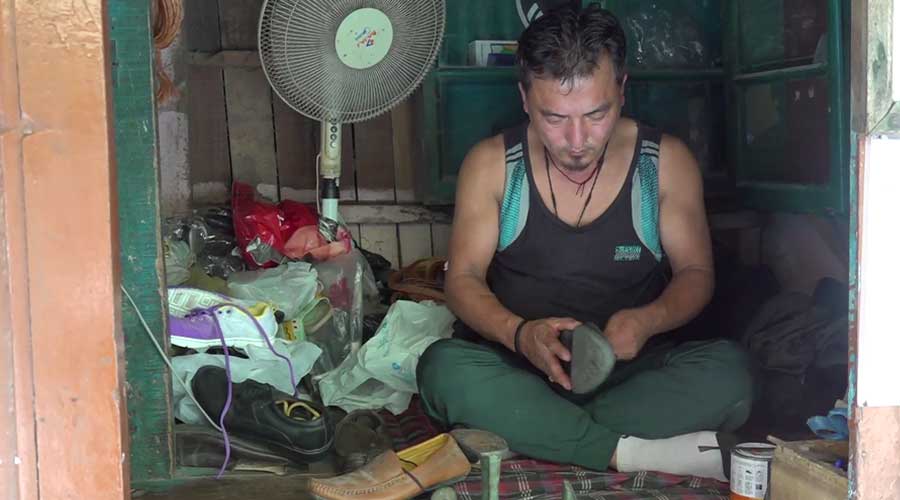
The lone cobbler in Samdrup Jongkhar is trying all his means to retain customers for his shop. Since the border reopening, businesses in the bordering town have been losing customers across the border.
Kelzang Jigme opened the first shoe repair shop in Samdrup Jongkhar Thromde last year. And the business was doing well earning him a decent income until the borders reopened in September. He used to earn about Nu 2,000 in a day before the border gate reopened. And now his income has been reduced to just Nu 500.
To attract customers, Kelzang has reduced the rates, keeping them at par with the price across the border town.
“People are going across the border but still then I don’t want to close my shop. I will compete with the cobblers across the border. Now, I have started providing the same rate as in India. Earlier, it was Nu 250 for stitching boots and Nu 150 for slippers. I used to charge Nu 50 to polish shoes. Now, I have reduced the rates; it is Nu 40 for polishing, Nu 180 for stitching boots, and Nu 100 to stitch slippers,” said Kelzang Jigme, cobbler.
For the residents, besides quality, they need services at reasonable rates.
“People visit Indian towns since it is cheaper. If the cobbler shop inside our country also provides the same rate, then I think it is better to avail themselves of the services from here,” said Ugyen Peljor, a resident.
“Without much difference in rate, I think people will not visit Indian towns for repairing shoes. It is better to get services from Bhutan only,” said Bawa Gyeltshen, another resident.
Undeterred by the setback, Kelzang plans to upgrade his shop by installing some shoe-repairing machines and providing good and reliable services to his customers.
“I am thinking of buying a stitching machine and will look for a big space,” said Kelzang Jigme.
Not many Bhutanese want to venture into the shoe-repairing business. But for Kelzang Jigme, his interest and skill in repairing shoes have become the main source of livelihood.
Kinley Wangchuk, Samdrup Jongkhar
Edited by Tshering Zam









